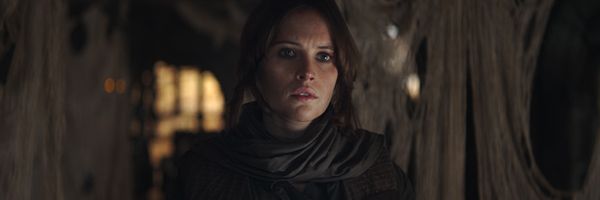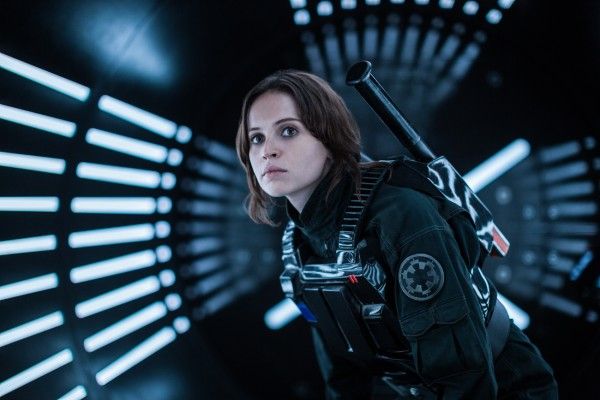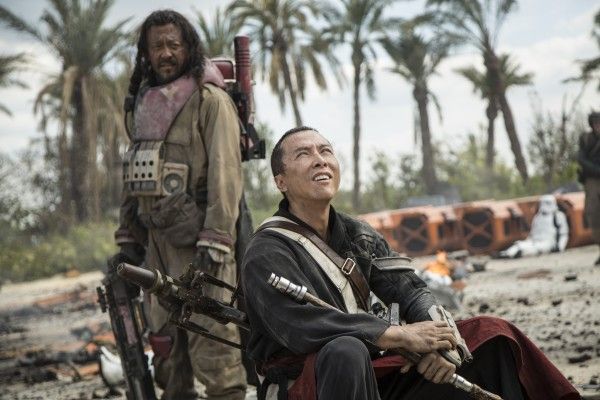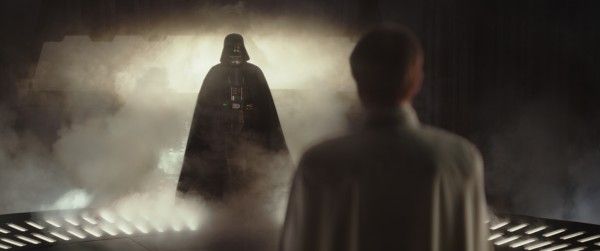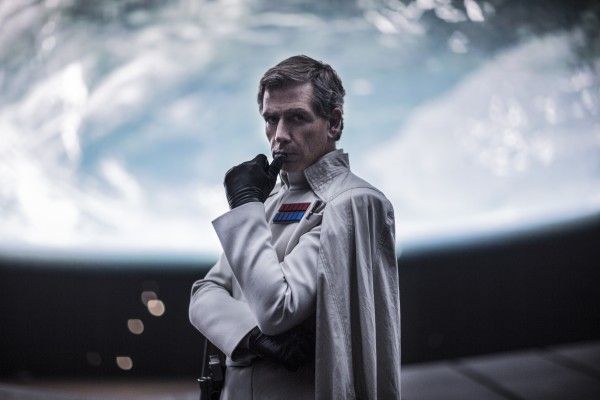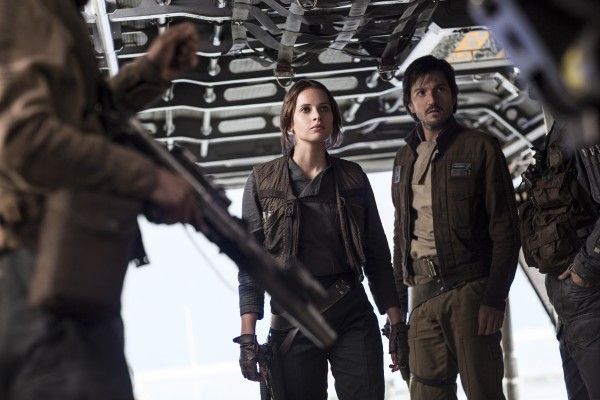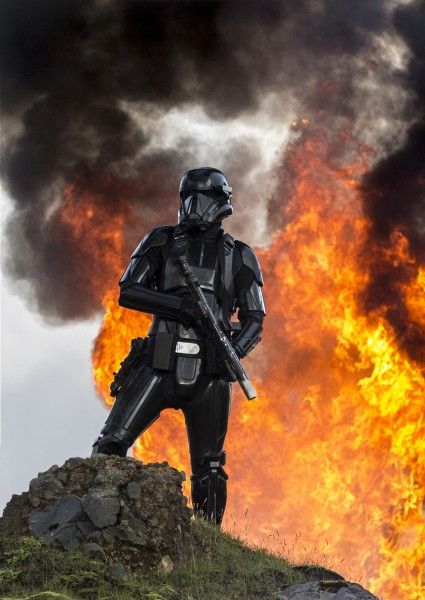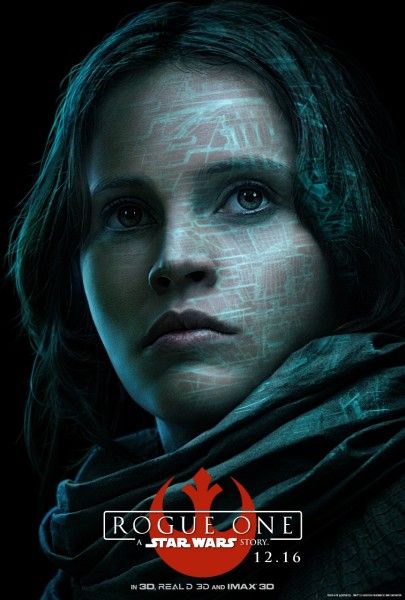Rumors about the “troubled” or issue-ridden production of Rogue One: A Star Wars Story have been running rampant for a while now. The flames were fanned when we learned that, this summer, Disney and Lucasfilm were reportedly going back in for “extensive” reshoots on the film with another director—Tony Gilroy (Michael Clayton)—coming in to be another pair of eyes on the project alongside director Gareth Edwards. The simple fact that you’d go back to re-do or shoot new footage causes some concern with fans, but reshoots have become a regular part of the blockbuster movie making process, and another recent film underwent “extensive” reshoots and turned out just fine: Star Wars: The Force Awakens.
But there’s one area where Rogue One did undergo a pretty serious behind-the-scenes change that, while not exactly cause for alarm, wasn’t an ideal scenario. Composer Alexandre Desplat left the project in September, a mere three months before the film’s release, leaving Rogue One without a composer or original score. Lucasfilm and Disney moved quickly, hiring Oscar-winning Inside Out and Jurassic World composer Michael Giacchino to take over, and he was given every composer’s nightmare deadline scenario.
However, it sounds like things worked out well score-wise in the end, as Giacchino recently granted a pretty extensive and revealing interview to EW where he discussed the experience. Speaking with the outlet, Giacchino revealed that when he signed onto the project, he opted not to learn why Desplat departed Rogue One so he could focus only on churning out his own score:
“I’ll tell you, I actually don’t know an awful lot about that. [The filmmakers] were like, ‘Do you want to know what happened?’ And my response was, ‘You know what, when this is all over we can sit and talk and have a drink and you can tell me whatever you want. I’d love to hear the story. But for right now I feel like I’d rather just pretend nothing happened and everything is good and I’m just going to come onto this.’ And they were like, ‘Fair enough, fair enough.’ So honestly, I don’t know anything about it other than what was purportedly, you know, ‘schedule issues.’… With that amount of time left, I was like, ‘I don’t want to get wrapped up in any sort of gossip or figuring out what was wrong when all we really need to do right now is figure out how do we just get accomplished what we have to get accomplished?’
And the Lost composer had plenty of reason to narrow his focus, as he revealed to EW that he only had a mere four and a half weeks in which to write the entire score for Rogue One:
“It’s not really. But you work with the time you have. And I’m not a person that has a bunch of other composers working for me, so it’s just me sitting up here in this room doing it. But I’m pretty good at focusing and getting down to business. I saw the film and I really, really, really enjoyed it, so there was no lack of ideas or inspiration, that’s for sure. The only worry the whole time for me was just the schedule. But I mapped it out and I thought, okay, if I do this much a day and I get this done that will leave me time to go back and improve if I need to before having to orchestrate.”
Giacchino’s career has been wildly dynamic thus far, ranging from sci-fi epics (Star Trek, John Carter) to intimate dramas (50/50, This Is Where I Leave You) to family films (Up, Zootopia), but when it came to putting together the Rogue One score, the composer harkened back to his early days composing the scores for the World War II video games Medal of Honor and Call of Duty:
“It is a film that is in many ways a really great World War II movie, and I loved that about it. But it also has this huge, huge heart at the center of it, and that was the one thing I just didn’t want to discount. Yes, it’s an action movie, and it’s a Star Wars film, and it has all the things that you would come to expect and love about that, but I didn’t want to forget that it was also an incredibly emotional movie as well. That was what really pulled me in. I love working on projects that have an emotional center to them – and not manufactured emotion either, even though, you know, [laughs] it’s a weird thing to say because literally that’s all we’re doing, manufacturing emotion.”
The composer also stressed that the mandate for Lucasfilm with this standalone is that it’s very much its own movie, so while there are nods to John Williams’ iconic Star Wars score here and there, most of the score is brand new:
“I think absolutely there are a couple of times when you want to hit upon something that was from the past. For me, even as a fan, it was about going, “Oh, this particular idea would be great if we did it here. I would want to see that if I were watching a Star Wars movie.” As a kid who grew up with John’s music and who was catapulted in this direction because of what he did, I had a very specific idea of what I wanted to use and how I wanted to use it. That being said, I’d say the score is 95 percent original but with little moments [of Williams’ classic score] here or there to accent. If I were sitting in that seat and I heard that, it would totally raise the hairs on my neck.”
Giacchino is one of the most exciting composers working today so I can’t wait to hear what he’s put together here, especially in such a short amount of time. Luckily we don’t have too long to wait as Rogue One: A Star Wars Story opens in theaters on December 16th. Moreover, we’ve just learned that tickets for the film go on sale on Monday, November 28th.
For much more on Giacchino’s work on Rogue One, check out the full interview over at EW.

